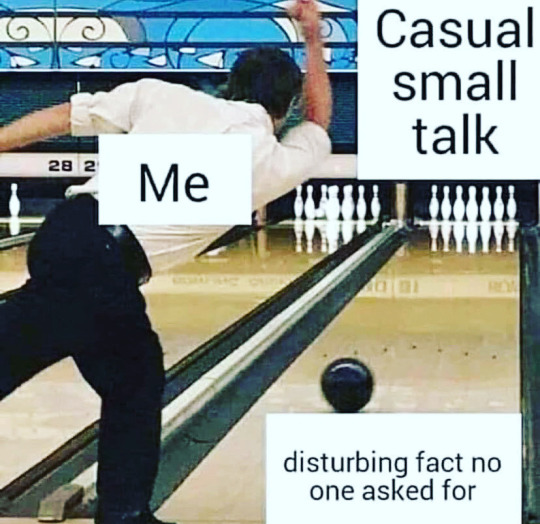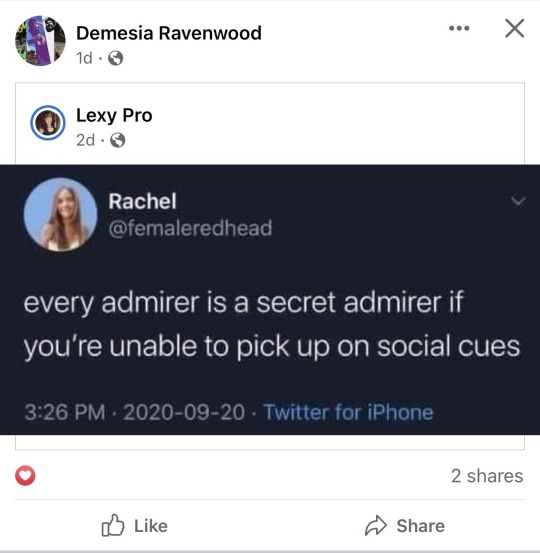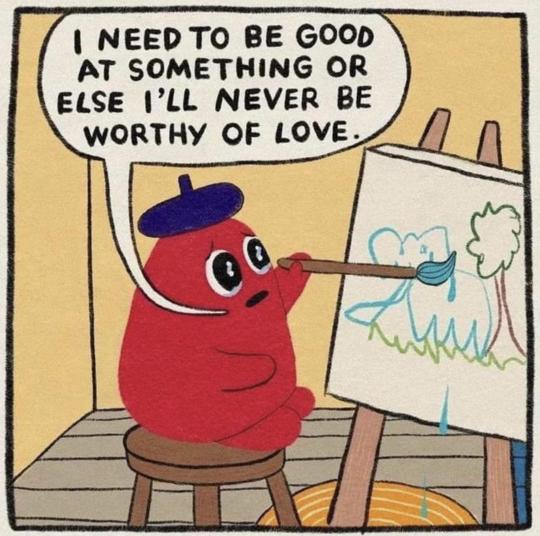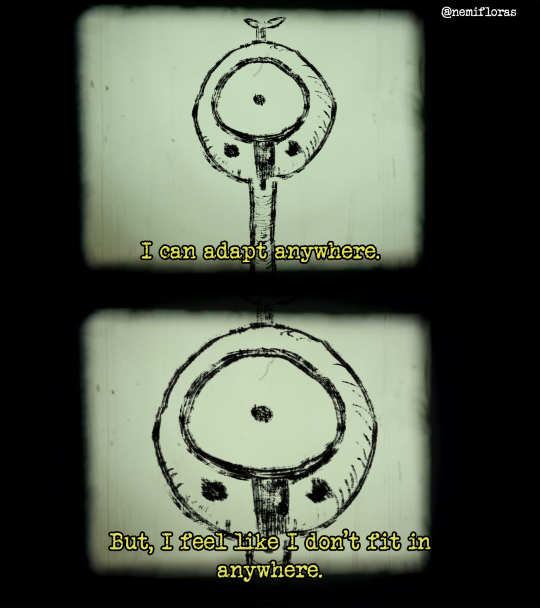#aspie stuff
Text
autism x aromanticity
hello, autistic and aromantic person, i have some genuine questions for you.
how do you know the difference?
how do i know if the discomfort i'm feeling is something related to autism or something related to the fact that i don't want/feel the need to be in a relationship?
or, whatever? it doesn't matter if it's autism or aromanticity, the important thing is that you don't want a relationship.
i'm asking because i was very afraid to say that i'm an aromantic person, since it could be something about me being autistic. but genuinely, i don't know what are the differences and if i can consider myself aromantic in any way.
#autism#aspie problems#aspiegirl#autism spectrum#autism spectrum disorder#aspie#aspie stuff#aspielife#autismo#espectro autista#lgbtqia+#queer#aroace#aromantic#aromantism
36 notes
·
View notes
Text

129 notes
·
View notes
Text
I think I have masked long enough
#autism#aspie memes#aspie supremacy#aspie stuff#aspielife#aspie#autism memes#neurodiverse stuff#neurodivergent
28 notes
·
View notes
Text

#lol#audhd#actually autistic#social cues#adhd#autism#autistic#relatable#funny#lmao#dating#dating on the spectrum#on the spectrum#aspie stuff#aspie#aspergirl#lesbian pride#lgbt#lgbtq community
46 notes
·
View notes
Text
This is not one of my usual posts but nonetheless im making it.
Do you think you have autism?
If yes, are you unable to get a professional diagnosis, but you have hours of research from trusted sites?
Your autism is valid.
Do you think you’re invalid because you’re “too old”
Still valid.
Do you mask so well you think it doesn’t count?
still valid.
I didn’t suspect i had autism until I was 12, nearly 13, but since I was almost 13 nobody wanted to go through a lengthy testing process. I masked well, so well that I didn’t “look autistic”, so I had to self diagnose. Some people might think I’m looking for attention but I’m really looking for an explanation of why I’m not normal. I have done countless tests from embraceautism.org because it has actually autistic people who recommend the tests I take and I monitor my scores so I can say I’m autistic.
The word “autism” explained so much for me.
Why I cant make eye contact.
Why I cant maintain conversation
Why my interests are so strong
Why I have to stim all the time
Why I overreact/underreact
Why I go mute sometimes
Why my friends don’t understand me
Why it’s so hard to even make friends in the first place.
So go ahead. Research your suspicions. Just do it so it doesn’t hurt the rest of us self diagnosing. Find trusted sites. Cross check day by day. Come up with a conclusion that makes sense. Don’t lie about symptoms so you can get attention. Stay true to who you really are, aspie or neurotypical. If you are nt, great! You might understand us aspires a bit better after that research.
#autistic life#autistic community#autism#self diagnosed autism#you are valid#aspie stuff#being autistic#late diagnosed autistic
46 notes
·
View notes
Text
Blorbo headcannon monday
Wednesday Addams is on the aromantic spectrum.
There, I've said it.
She:
- is clearly romance repulsed (grossed out by her parent's behavior)
- never expressed affection towards ANYONE apart from one kiss with Tyler (most likely demiromantic?)
- doesn't understand dating /sending signals and the like, literally says she doesn't need that in life
- clearly also on the autism spectrum (kinda ties in with the previous point -not understanding social cues etc)
I was really worried that the writers would force her into a relationship showing that aromanticism needs to be "fixed" but she clearly doesn't want to be in a romantic relationship with anyone, instead having very strong platonic relationships like with Enid, and she STAYS that way.
And I just feel very happy, even though this is just a headcannon. It's good to have a character to relate to.
Anyone else? Or am I just crazy
#wednesday#wednesday addams#aromantic#aromantism#aro#headcannon#blorbo#no romo#autistic wednesday addams#aspergers#aspie stuff#aspec culture#aromantic spectrum
51 notes
·
View notes
Photo

4 notes
·
View notes
Text
I see LGBTQ representation & cultural representation & women's rights shit everywhere.
My question is: Where's the autism representation? I'm an aspie & we're a minority too. Where's my aspie representation? Where's my stupid ass looking technicolor flag of "look at me, I'm so special!"?
Hell, if you think about it, the autism spectrum gets less representation in media than most. A heck of a lot less than the LGBTQ anyway!
We've really only got 2 good representatives in media: Donnie from Rise of the TMNT & the main character from The Good Doctor.
19 notes
·
View notes
Text
autism x work
so, do you guys recommend saying that i have autism in my work place?
#autism#espectro autista#autismo#aspie#aspie problems#aspie stuff#aspiegirl#aspielife#autism spectrum#autism spectrum disorder
22 notes
·
View notes
Text
Mary and Max. (2009), Adam Elliot

Disabled
Summary: Two lonely souls find the connection of a lifetime, their friendship growing through the exchange of heartfelt letters shared across the Atlantic for 20 years in Adam Elliot’s directorial debut.
youtube
Full Review: The isolation enforced by the COVID-19 pandemic brought to the forefront a growing problem facing today’s population: the burden of loneliness. As social creatures, throughout the course of our evolution, it's been recognized that we have an innate desire to connect with others. Even for the most introverted of us, forming meaningful connections with a select few enhances our quality of life (and those select few can come as fellow humans, or four-legged furries).
The difficulty of making and sustaining said connections is a challenge not to be dismissed, and one that is taking a growing toll on our mental and physical health, with Americans, in particular, reporting heightened rates of isolation even prior to COVID-19 pandemic.
Some of the culprits? Many scientists debate whether technology helps or hinders communication, and there is no secret about the impact of modern-day technology on the social anxiety and self-esteem of those who engage with it, which can hamper the development and maintenance of interpersonal relationships. But the roots of this conversation extend back further than we often think about, and similar conversations took place in the 1960s and 70s with the integration of the television set into a growing number of households, as well as the introduction of fast food as a more commonplace feature of weekly dinnertime routines out of convenience. What was argued to be a “less social” family structure (the replacement of the dinnertime around the circular table ritual), was proposed as a trigger for what would result in children who would become less social, and who would fail in forming stable relationships of their own.
Here in the 70s, is where Mary and Max. begins, on opposite sides of the world with two characters who embody both isolation and domestic instability in their own right. In Australia, the eight-year-old Mary Daisy Dinkle (voiced by Toni Collette) is a bullied youngster who lives with her alcoholic, kleptomaniac mother, and her emotionally-absent father. The closest person she has to a friend is her agoraphobic double-amputee neighbor, who she communicates with across the street via waves in the window and her pet rooster and as she wistfully spends her days drinking her favorite food, sweetened condensed milk, and gazing after her crush, Damien Papadoupolis (voiced by Eric Bana).
One day while at the post office, Mary does what many children in the era of thoughtful penmanship, seeking random encounters of a time-forgotten kind have done: she picks a name out of a phone book, pondering what the lives of Americans must be like. It's a chance act, a name that could have been anyone, and it happens to belong to one Max Jerry Horowitz (the late Philip Seymour Hoffman).
Dwelling in New York City, Max is a 44-year-old who has lived a life working odd jobs, seemingly moving from one thing to the next as life takes him. He is overweight, attending Overeaters Anonymous meetings at the behest of his psychiatrist, yet displays a degree of comfort with himself and his body despite every signal from society telling him he shouldn’t. These meetings are a discomfort to him, not due to the fact that he has no desire to lose weight, but due to the sexual harassment he endures from a fellow attendee and his inability to communicate his displeasure at her advances (more on this later).
When Max receives Mary’s first few letters, they send him into full-scale panic attacks due to the gravitas of her curiosity and the scale of her questions. Eventually, however, the two form a friendship and discover they share the same love of chocolates, the Noblets (a Smurfs-like television show), and an understanding of one another's loneliness.
The pair build a friendship that stands the test of time: Max’s meltdowns, Mary’s ascent through puberty, the death of her parents, and his own winning the lottery. It's a beautiful reminder of a time in which we could envision innocence in such an encounter, rather than assuming the worst.
In 2023, it’s clear from the outset that Max is neurodivergent. The description of the film is quick to point out his characterization as a man living with Asperger’s Syndrome, yet even millennials can remember that there was a time in which awareness of Autism Spectrum disorders wasn’t as commonly talked about, and those displaying neurodivergent qualities were often written off as “quirky” at best, or stereotyped as screaming “retards” at worst.
From Max’s inability to fend off the woman at his Overeaters Anonymous meetings who aggressively kisses him to the occasionally inappropriate things he pens to Mary, Max displays hallmark symptoms of difficulties understanding how to relate to others, and the world around him, and struggles to emote.
When Max is diagnosed with Asperger’s, it comes as an aha moment for him in which he finally has an answer for the questions people around him have been demanding for so long. In one of the most poignant speeches in the film, he writes to Mary:
“Dr. Bernard Hazelhof says my brain is defective but one day there will be a cure for my disability. I do not like it when he says this. I do not feel disabled, defective or I need to be cured.
I like being an Aspie. It would be like trying to change the colour of my eyes. There is one thing I wish I could change, however. I wish I could cry properly. I squeeze and squeeze but nothing...comes out.” (Mary & Max. (2009))
Following this, Mary sends him a jar of her own tears which he proclaims to be the best gift he has ever received. While he struggles to cry and emote in the ways neurotypical people do, the warmth that he feels practically emanates through the screen, a display of profound body language resonating through claymation that is a testament to the power of both the animation and power of Eliot’s writing.
Later in the film, the most pivotal moment in their friendship comes when Mary, writing her senior thesis on Asperberger’s Syndrome, uses Max as her test case without his consent and publishes a book to launch her career which she hopes to use as a “cure”. She does not speak to him about this beforehand, somehow forgetting his statement all those years later, and informs him shortly before publishing when she sends him an advance copy of the book which nearly causes him to have a heart attack due to his outrage. He is betrayed by the feeling of being used and the implication that he needs to be cured.
Furiously, Max goes back and forth about writing her an angry letter then finally resides on simply ripping out the “M” key from his typewriter and poignantly sending it to her, before ceasing contact for some time.
In time, they resolve their relationship. As the older of the two, one of the more prominent details in the film is Mary endlessly flounders through the struggles that plague young women and seeks to resolve them by conforming the way society often tells us to: through romantic relationships, though aesthetically “fixing” ourselves, through pouring ourselves into careers or giving birth. Max on the other hand often imparts on her the most simplistic advice that over time, we inevitably learn to be the most effective: love yourself first. These are powerful words, printed on a chalky candy heart that are easily forgotten by Mary, discarded time and time again no matter how many times Max imparts them through various lessons, tales, or forms of advice. Yet throughout the twenty years of their friendship, they work effortlessly to improve his own life, offering him solace in a world that refuses to accept him.
Today, the idea of a 44-year-old man and an eight-year-old girl becoming pen-pals would undoubtedly strike the idea of “grooming” first and foremost in the hearts of many, and one would wonder if the film was realized in 2019 rather than 2009 if it would have been received as beautifully as it had.
Given its time though, Mary and Max. instead captured the reminiscence of an era and the purity of a relationship that instead of ending in horror, represents the types of love we don’t see represented onscreen enough: platonic love, and self-love.
Mary and Max. is a powerful film, one that stands as a beautiful example of representation of neurodivergent folks, as well as an example for young people about a bygone era of life in simpler times. Even now, it wasn’t so long ago that a generation of people now just in their 30s experienced the pleasure of making friends based on calling strangers in phone books, discovering the power of intentional connection, and the freedom that rested in long-form letters and postcards.
Currently, Mary and Max. can be streamed on Tubi, rented via digital platforms like Amazon, Google Play, and YouTube, or you may be able to find a copy at your local library.
Citations:
#thevisibilityarchives#tva#diversity#disability#aspergers#aspec character#neurodiversity#animation#stop motion#films#movie#disability visibility#aspie stuff#neurodivergent#Youtube
3 notes
·
View notes
Photo

#sad#frames#oldmovies#always tired#dark academia#dorisdarche#filmisnotdead#indie#aspergers syndrome#aspergers#autistic#neurodivergent#aspie stuff#solitude#loneliness#retro aesthetic#old camera#super 8 mm#super 8
12 notes
·
View notes
Text
When I was younger I thought being funny was something you had to grow into- like “drink your milk so you can get big and strong and funny”
Anyways, I’ve been an adult for a little while now and I’m starting to think that’s not how it works.
#funny#humor#jokes#bad jokes#aspie#aspie problems#aspie stuff#autism#autism community#autistic life#aspielife#autistic#autistic feels#autistic problems#relatable#when will I get the funny#waiting to grow funny bone#funny bone#when I was younger#story#joke#childhood#man kids are dumb#stupid kids
9 notes
·
View notes
Text
Sometimes you just need your therapist to laugh at your neurodivergent joke for everything to be fine
4 notes
·
View notes
Text
Had to rewrite this multiple times bc I was worried it would sound like I’m tooting my own horn or something
but I genuinely get surprised when I’m heavily praised for doing something that I genuinely see as a neutral thing to do
Eg If I find someone’s folder that’s wet, I’m going to try my best to dry the paper before giving it to them. Bc i someone find my wet folder with notes in them, I would like it if they dried them for me, as it saves me time from doing it and it prolly means the notes are less ruined
like I have actually done something like this a week ago. I am confused still that I was praised for doing it so much. It’s just a neutral thing for me to do.
I don’t actually view it as a nice thing to do. I don’t know how to explain how I view it but I can’t say I don’t like when I’m told I’m a nice person as I’d be a giant lier lol
#It’s the same with ‘complements’#if I eg say “I like your dress”#I’m actually just saying I like your dress#I don’t actually care if that makes you feel nice#I’m just stating my that I like it#Like j can tell if I’m complementing or stating#bc if it’s a complement I’m doing after thinking about it and on purpose and it’s a statement I’m just blurting out that I like it#neurodivergent#aspie stuff#i think#Idk#It’s annoying as I also without thinking if I’m actually eg enough energy to help people#like I’ve also helped them wished I didn’t because it meant I missed out
1 note
·
View note
Text
the opening of peace talks

If you want a beginning.
I start with a flight. And a thought
I never thought about to loving Dublin. I just wanted travelling.
A wish from an Asperger young woman
#flight#autism#ireland#dublín#travel#aspergers#aspiefemale#actually aspie#aspie things#aspie stuff#aspie#love
3 notes
·
View notes